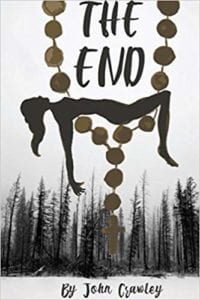
Shelf Unbound: Your main character Lucy is dying from cancer; her estranged brother, a devout Catholic priest, is her next of kin in control of her end-of-life decisions and disapproves of her long-term relationship with her partner Christine. What made you want to write about end of life issues?
John Crawley: Over the years I had watched relatives suffer and die from debilitating diseases. Then one night, my wife and I had to put our pet cat down. The process was so peaceful and humane that I began to wonder why we could not do the same for people. I followed closely several cases of people, on their deathbeds, seeking the assistance of Oregon’s Death with Dignity Act, and thought it would make a fine basis for a story. And it is a topic I feel strongly that we need to have discussion about in our society.
Shelf Unbound: You’ve written a number of novels. What interested you in creating a lesbian main character?
Crawley: I needed a point of conflict between Lucy and her devoutly Catholic brother and between the two women and the state of Oregon. Them being lesbian gave me the two-sided conflict I needed. It also handed all the power in the decision to Lucy’s brother, who was at great odds with her decision, which was a means to get the other side of the death with dignity story told.
I did a great deal of research into the lives of lesbians and how they react to certain language, definitions, applied stigmas and life events. Many women in the lesbian community read the script and while I got feedback on certain phrases or words, they were all pleased with the portrayal of their community.
Shelf Unbound: What’s your writing process: do you map out a story at the start or let the story take you where it will?
Crawley: I once asked a singer-songwriter buddy of mine if he heard the entire song as he sat down to take on a piece of music for the first time. He said he did. I am somewhat of the same mind as I sit and approach a novel. I know where it is going, and usually in great detail.
